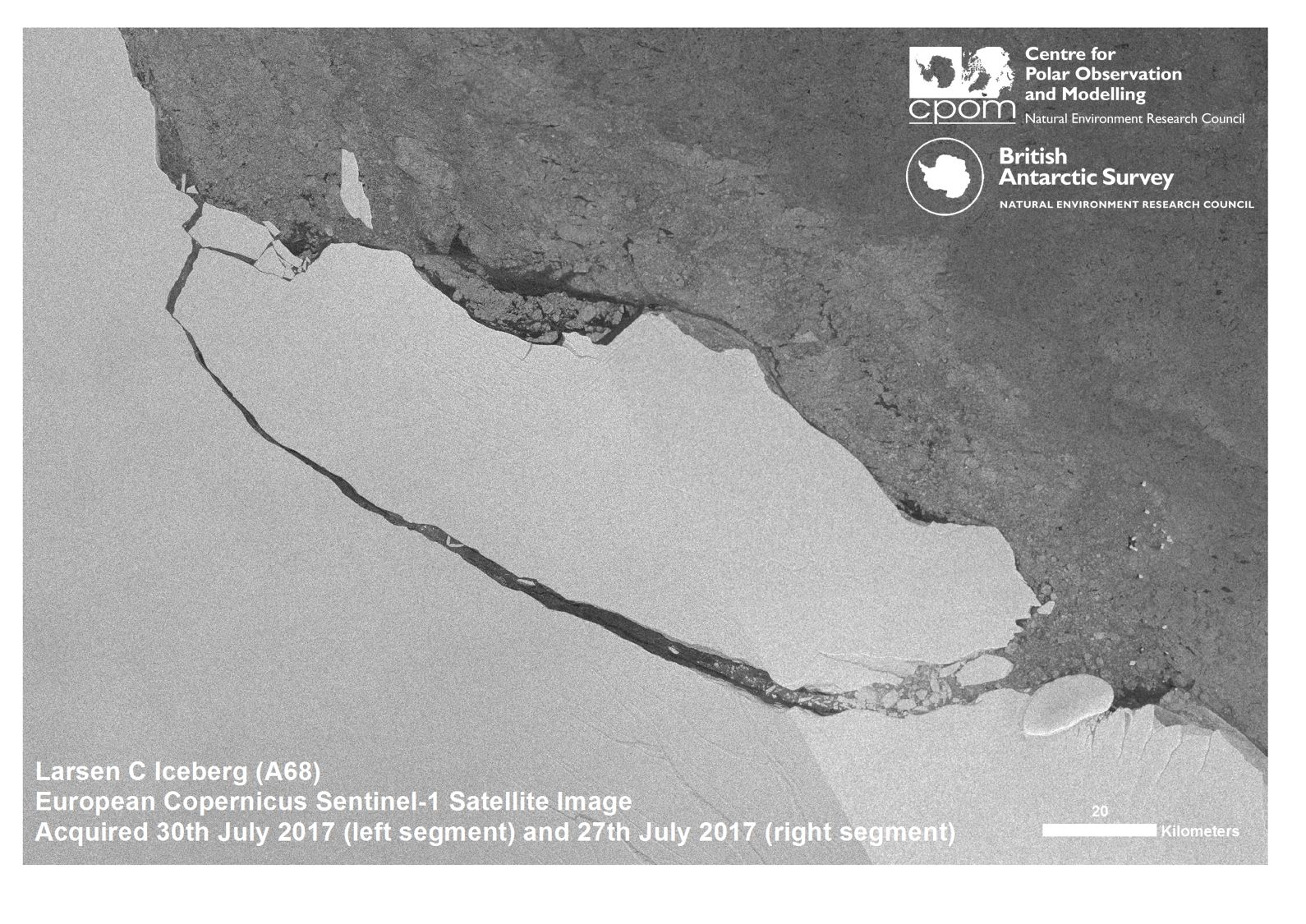A new project launched by the Institute for Research in Schools (IRIS) is offering students the chance to contribute to scientific understanding of the polar regions.
Funded by the UK Space Agency, MELT will allow schools to monitor changes at the poles using Earth Observation data.
CPOM’s Anna Hogg will be helping students to understand the latest satellite Earth Observation data and investigate events such as iceberg calving, where recent dramatic changes suggest that environmental conditions have changed.
Dr Hogg said: “There are really exciting opportunities for students to work with Earth Observation scientists on major changes. We used Sentinel-1 satellite data to watch a giant iceberg four times the size of London broke free from Antarctica’s Larsen-C ice shelf in 2017, and now students can use the same data to measure if new icebergs calve off some of the fastest flowing glaciers in the world!”
 MELT is also challenging schools to calculate their carbon footprint and develop ideas for reducing their carbon output.
MELT is also challenging schools to calculate their carbon footprint and develop ideas for reducing their carbon output.
Darren Harman, from Sir Robert Woodard Academy, commented: “MELT has presented a group of our Year 9 students with an amazing opportunity to be part of novel science research, that will undoubtedly enrich their experience of learning science in a way that they wouldn’t otherwise have access to until university and beyond.
“Not only are they excited at what they might discover looking at data no other human has yet cast their eyes upon, but also the prospect of inspiring students at local primary schools to share in their experience of running live science research in schools.”
Professor Becky Parker, director of IRIS said: “We’re really looking forward to seeing the results from MELT. It’s a great opportunity for schools to engage their students in work to impact the environment and use the latest satellite data. It’s fantastic to receive the backing from the UK Space Agency and our schools can’t wait to get started.”
For more information on the Institute for Research in Schools (IRIS) MELT project please visit the IRIS website.
